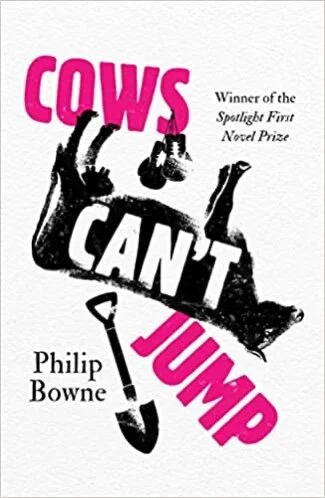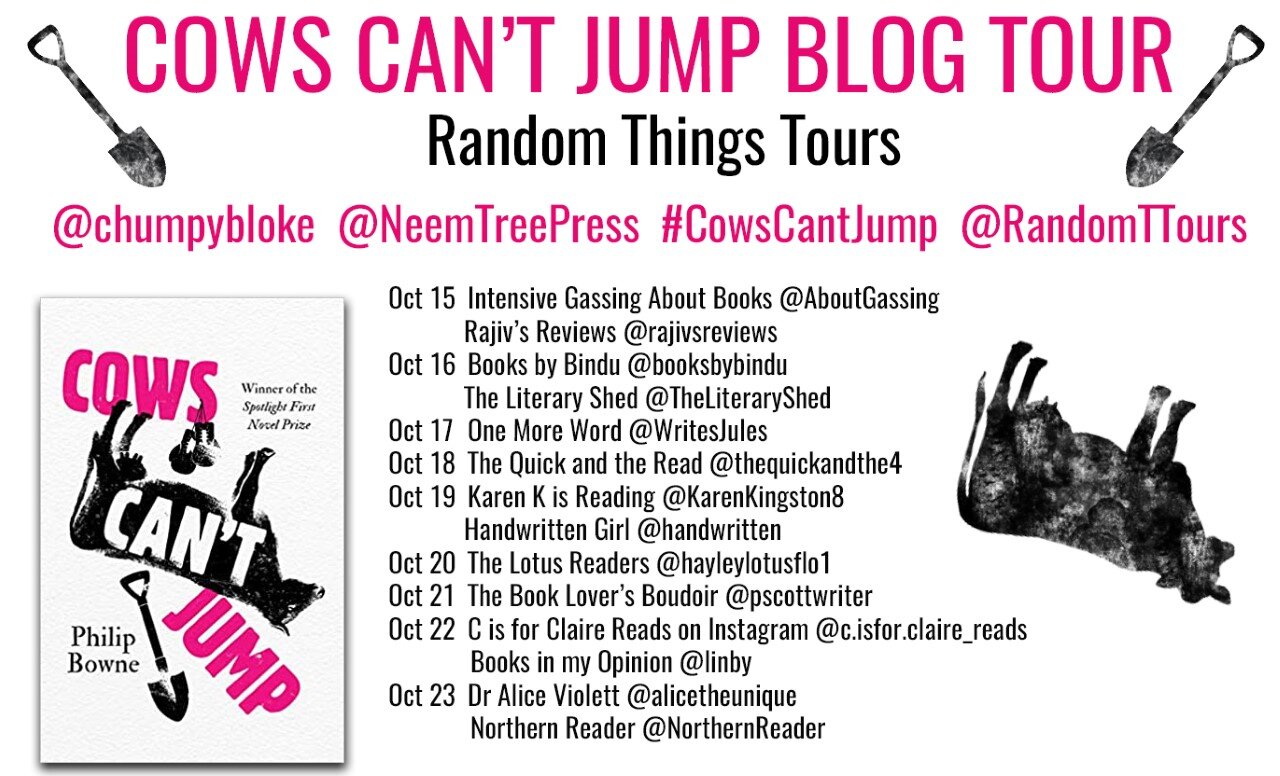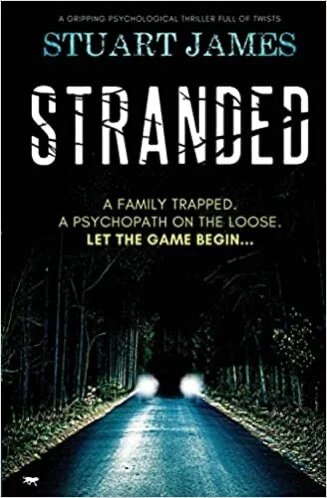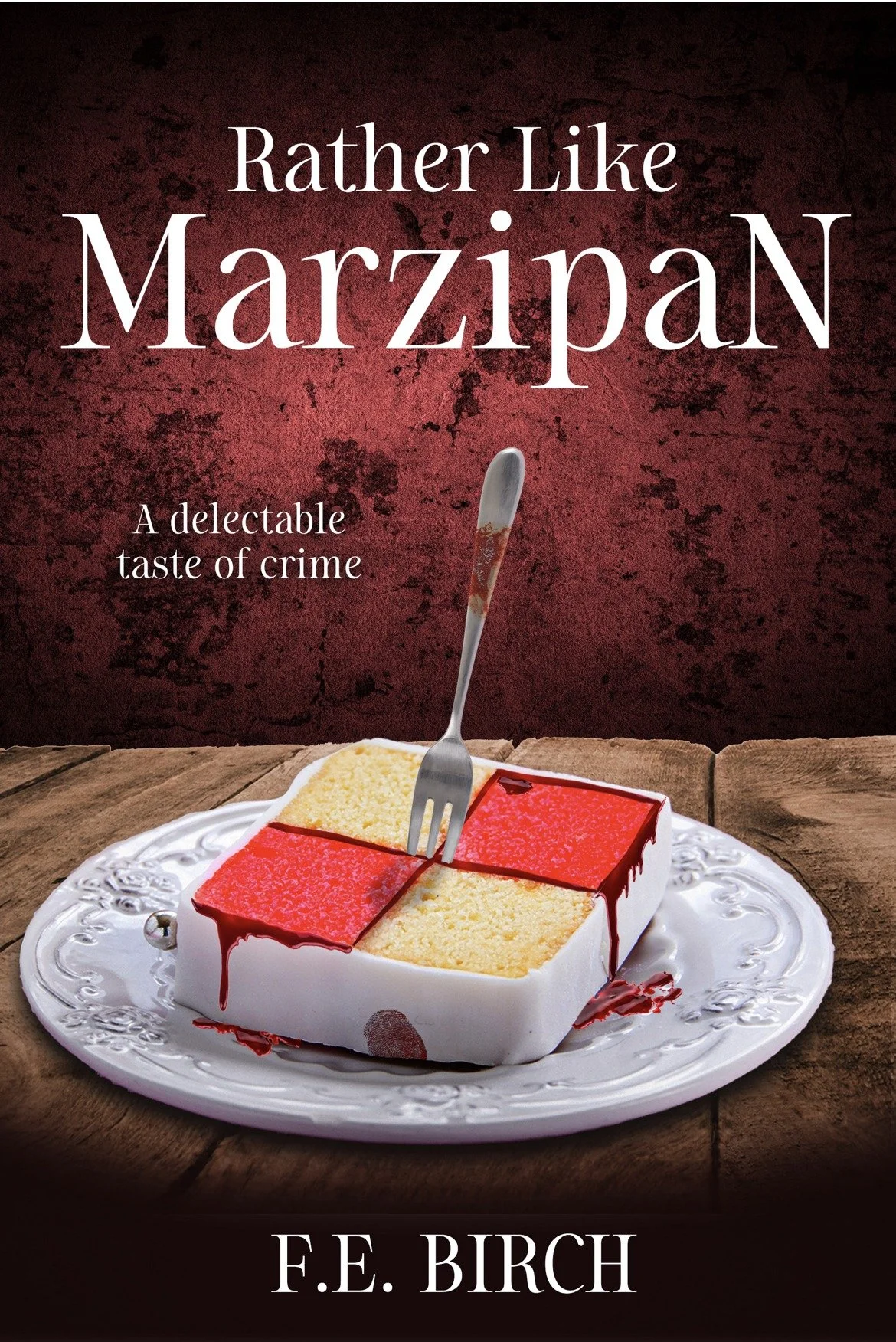Cows Can’t Jump by Philip Bowne
17-year-old Billy has just left school with no A levels and he's desperate to escape middle England. As a grave-digger, he’s working the ultimate dead-end job. Billy’s home life isn’t any better. In the evenings, he observes his dysfunctional family: his Grandad’s engaged to a woman half his age, his xenophobic Dad’s become obsessed with boxing, and he suspects his deeply religious Mum is having an affair.
All the while, celebrities are dropping like flies and Britain is waiting for the EU referendum. Everything is changing, and Billy hates it.
Meeting Eva, though, changes everything. She’s Swiss, passionate about Russian literature, Gary Numan, windfarms and chai tea, and Billy gambles everything for a chance to be with her.
When things start to go wrong, Billy’s journey across Europe involves hitch-hiking with truckers, walking with refugees, and an encounter with suicidal cows. But the further he goes, the harder it is to be sure what he’s chasing – and what he’s running from.
Philip Bowne lives in London and works as a writer for The Wombles, a children’s entertainment brand.
Like his protagonist, Billy, Phil attended a failing and severely under-resourced school in Bicester, Oxfordshire.However, unlike Billy, Phil ended up studying English Literature and Creative Writing at university.
While studying, Phil published short stories in literary magazines and anthologies in the UK, US, Canada and Germany. After graduating, Phil spent time in Europe and the US, working and volunteering in various roles and settings: repairing boats at Lake Como, housekeeping at a mountain lodge in California and working with charity Care4Calais in the former Calais ‘jungle’ refugee camp.
Cows Can’t Jump is Phil’s debut novel, which he worked on while managing a bar in London. As well as a writer for The Wombles, Phil also works on a number of independent writing projects, including a musical set in 1970’s Soho and a sitcom set in a failing leisure centre.
Extract
In 2016, I punched my Dad in the face. There’s lots of things I did that year that I’ll never be able to forgive myself for. A lot more than I’d like. Punching my Dad in the face wasn’t one of them. That was one of the few good things I did.
At the start of the year, I was living at home with my Mum and Dad. I was fresh out of school, working the ultimate dead- end job: I was employed as a gravedigger. Mum and Dad had hoped I’d take A-levels, but I wasn’t good at anything and I didn’t know what I wanted to do. I don’t think anyone ever knows what they want to do. People pretend.
I’d quit school as the government announced a referendum on Britain’s membership of the EU. Everybody was talking about it. Across the country, it caused a lot of arguments. Relatives, friends, colleagues, strangers in pubs: everyone was fighting. I don’t think I had an opinion on the referendum. I don’t think I had an opinion on much. I only knew that I disagreed with my parents on everything.
Take religion, for instance. Mum attended church every Sunday, and a crucifix hung in every room of our house. Even the toilet.
There had been one on my bedroom wall until I was fourteen, when I decided that girls might not like it, if I ever got to know any. I took it down and stuffed it to the back of my wardrobe. Mum cried a lot after I did that. She said Jesus would never turn his back on me and that I would come to realise what I’d done was wrong. I didn’t think it was wrong. It wasn’t like I’d grabbed Jesus by the ear, shoved him in the back of my wardrobe and buried him in a heap of old jumpers. It was just a piece of wood.
It was through the church that Mum found me the gravedigging job. Looking back, I think that maybe her intention was to shock me into developing a career plan. Late in 2015, she sent me to our local church, where I met three men in their fifties. Mum hadn’t told me what the job was. It was a surprise, she’d said. I guessed the church was just a meeting point – I figured I wasn’t qualified to be a vicar. I thought we would be moving on to somewhere else – a shop, bar or restaurant. But when I arrived in the churchyard, the men were wearing grey overalls splattered with mud. They rested their feet on shovel blades that were planted in the soft wet earth, watching me approach in my ironed trousers.
“Billy?” the fattest of the men said. His name was Wayne. They were all fat, but at different stages of obesity.
They were lined up from the smallest to the biggest, like Russian dolls. The slimmest man was Davey, and the medium man was Frank. His overalls were covered in flecks of white paint.
“Yes,” I said. “I’m here to work.” I tried to stick my chest out and say the words in an unusually deep voice.
“Grab a shovel,” Wayne said. “You can change into your overalls in the church.” He had a gold hoop through his left ear and a purple scar on his right cheek.
The overalls were far too big for me and they stank of mud and rot. I imagined that was what death smelled like. I convinced myself that they were the overalls of a man who had died digging his own grave.
The Russian dolls talked and laughed and chewed tobacco. They walked around the churchyard whistling as they clipped back hedges and emptied the bins. Meanwhile, I had to dig until my hands bled.
I got to three feet deep before I collapsed onto my arse and stretched out in the hole.The sky seemed so much further away from down in that muddy pit. I lay like that for several minutes, imagining the dead bodies in the cold earth around me, watching the rooks gather in the afternoon sky. I closed my eyes and relaxed. I liked it in the grave. I didn’t like digging it, but it was a peaceful place to be.








